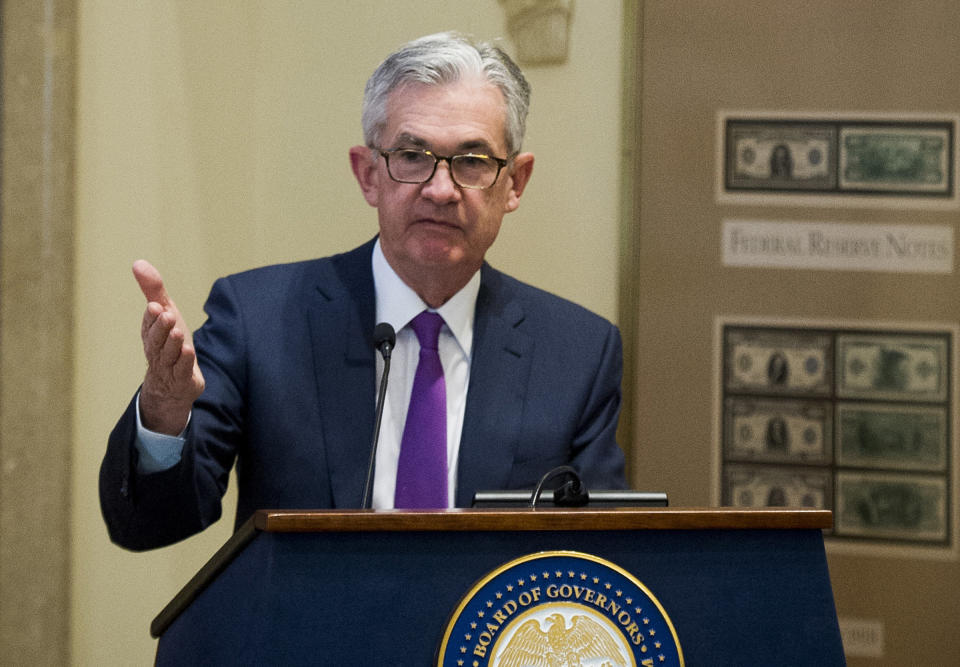The market may be wrong about next week’s Federal Reserve decision

The markets may be wrong about next week’s key Federal Reserve decision on interest rates.
Futures contracts by the CME are pricing in an 80% chance that the Fed stays on course and announces a rate increase on Wednesday.
But Nomi Prins, author of Collusion: How Central Banks Rigged the World, thinks there’s a good chance the central bank holds off.
“I think there’s a good chance of no hike next week and even if there is one, I expect more dovish guidance into next year,” Prins told Yahoo Finance. “I think the Fed is now expressing genuine concern about issues such as debt and record amount of collateralized loan obligations against a backdrop of an economic slowdown, trade wars, and geopolitical maneuvering.”
The markets have been grappling with relentless market volatility since early October. The S&P 500 (^GSPC) slumped 7% in October and eked out slight gains in November. As of Thursday, the broad index remains down 0.75% since the start of the year.
Much of the volatility was sparked by fears the Fed is raising interest rates too quickly in an effort to give the central bank tools to respond to the eventual next recession. The Fed has been moving interest rates away from crisis-era levels, set in the aftermath of the 2008 financial crisis. Still, higher interest rates make stocks less attractive by raising the returns on safer investments like certificates of deposits.
Traditionally, the Federal Reserve raises interest rates during the four meetings per year that include a press conference. This way, the central bank can explain its decision to the public.
If the Fed were to hold off in December, it traditionally would have to wait until March to raise interest rates - the next meeting with a press conference after December’s.
However, starting in 2019, there will be a press conference attached to all eight meetings, giving the Fed more flexibility with its policy.
Better for stocks
Prins thinks a January rate hike is better served than a December one, especially for the stock market.
“I don’t think the Fed should leave the year in an uncertain mode,” she said. “In December 2015 when we did the first rate hike since 2006, it was during similar warnings about the economy. After that rate hike markets tanked in January 2016.”
January 2016 was the worst start to a new year for stocks in history.
Just like stock traders don’t like to keep their positions open on Friday heading into a weekend, Prins doesn’t think the Fed should make such an important decision right before the year ends.
“It’s not like the economy is buzzing so much right now that we need four rate hikes this year instead of three,” she said. “If they wait, it’s a way of telling the markets that they’re taking a pause and will revisit economic conditions in the new year.”
The Fed has raised interest rates three times so far in 2018: March, June and September.
Scott Gamm is a reporter at Yahoo Finance. Follow him on Twitter @ScottGamm.
Follow Yahoo Finance on Twitter, Facebook, Instagram, Flipboard, LinkedIn, and reddit.
More from Scott:
The years of easy money in the stock market are coming to an end
With FAANG stalled, the market ‘needs leadership from somewhere’
These 2 forces could prompt companies to cut capital expenditures

 Yahoo Finance
Yahoo Finance 
